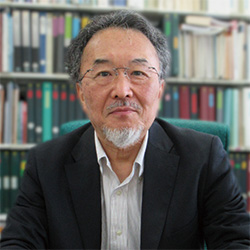Greetings from the Program Director
 Yuji Kohara, Ph. D.
Yuji Kohara, Ph. D.Program Director
Bio-resources, the strains, populations, tissues, cells and genes of animals, plants and microorganisms for R&D use, and information on these materials, are essential infrastructures for life sciences. It is vital that researchers share the various bio-resources necessary for pursuing research and development. This is because these resources, produced with years of painstaking labor, form the foundations for future research. It is also necessary for scientific communities to use a common set of bio-resources to permit their research results to be effectively compared. The development of outstanding collections of bio-resources is therefore essential to give this country an internationally competitive edge in life sciences.
Based on the Japanese Government’s Science and Technology Basic Plans, the Ministry of Education, Culture, Sports, Science and Technology (MEXT) implemented the National BioResource Project (NBRP) in FY2002 to construct a framework for the systematic collection, preservation, and distribution of bio-resources, with a special focus on those that require strategic development by the national government. The importance of bio-resources has been stipulated in the subsequent Basic Plans, and the current Sixth Plan (FY2021 – FY2025) states that the infrastructures of information for date-driven research and bio-resources should be established and upgraded strategically and systematically.
The NBRP is revised every five years, with the fifth phase having started in FY2022 with the addition of the aged mouse and mushroom categories. The current project consists of the cores of 33 categories of bio-resources and the center for information on these resources. The bio-resource framework has been enhanced by increasing the importance of value-added genomic resources and developing preservation technologies. Several of our bio-resource centers have been acknowledged as meeting the highest global standards. Currently, the Program Director (PD) and the Program Officers (PO) are responsible promoting the activities of the NBRP, taking into consideration the current trends in life sciences.
Finally, I would like to emphasize a lesson we learned from the Great East Japan Earthquake that the bio-resources cannot be restored once they are lost. Since this disaster struck, we have developed a backup system that includes long-term cryopreservation of bio-resources. Currently, the spread of COVID-19 around the world puts the maintenance and provision of bio-resources at risk due to restricted staff attendance. To solve this problem, we are promoting labor-saving in bio-resource maintenance and the adoption of remote monitoring systems. We will try to preserve the stable maintenance and provision of bio-resources even in the face of crises such as the current one. Your cooperation and support for this project will be highly appreciated.
April 2022
Yuji Kohara , Ph.D
Program Director, NBRP
Director, Database Center for Life Science,
Research Organization of Information and Systems,
Inter-University Research Institute Corporation

